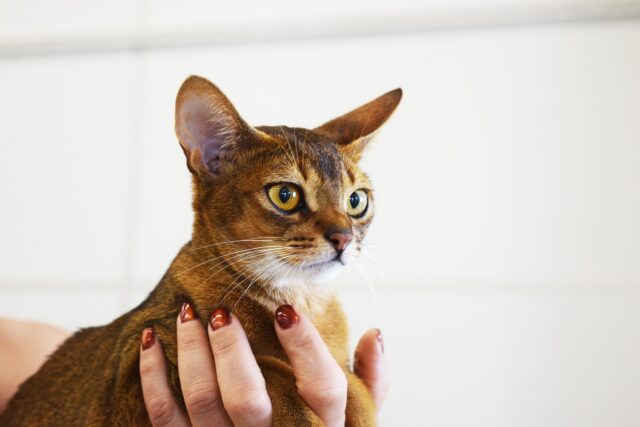Like the human ear, cat ears exist in three parts: outer, inner, and middle ear. Also similar to ours, the cat’s outer ear, or pinna, is made of cartilage and skin. But adorable feline ears have so much more pizzazz with their furry tufts and wispy furnishings!
And as seems fitting of the feline way, cat ears tend to stay nice and clean. From time to time, though, cat parents might notice some icky junk building up in there. A simple cleaning could be all that’s needed to put them back to right. So, how do you clean a cat’s ears?
Before you set to cleaning, you need to be aware of symptoms that could indicate a problem needing medical attention.

Symptoms of Cat Ear Problems
When a cat’s ears are ailing, you’ll probably notice signs of their discomfort pretty quickly. One of the veterinarians of the UK’s People’s Dispensary for Sick Animals, Dr. Olivia Anderson-Nathan explains, “Ear conditions can be very painful for pets.”
She urges pet parents to keep an eye out for ear problem symptoms such as:
- Head shaking
- Excessive scratching of the ears
- Redness or swelling of the ears
- Ear wax buildup
- Foul odor
- Head tilt
- Loss of balance
If any of these symptoms arise in your cat, make an appointment with the vet, as prolonging care could lead to hearing loss.

Dr. Anderson-Nathan also points out some animals are more susceptible to ear problems, depending on such factors as “skin allergies, narrowed ear canals, or floppy outer ears, or those with large amounts of hair growth within the ear canal.”
But what can happen to make a kitty’s ears feel bad?
The PDSA lists several issues which can affect cat ears:
- Skin allergies
- Ear infections of the outer or inner ear
- Creepy-crawlies like mites, these are generally discovered when a cat parent notices the gritty black stuff in a cat’s ears.
- Foreign object in the ear
- Cysts, tumors, and other growths
- Hematoma of the ear flap
- Diseases that affect balance
If your cat is lucky enough to avoid these conditions, you may still find she needs an ear cleaning every once in awhile, so it’s good to know how just in case.
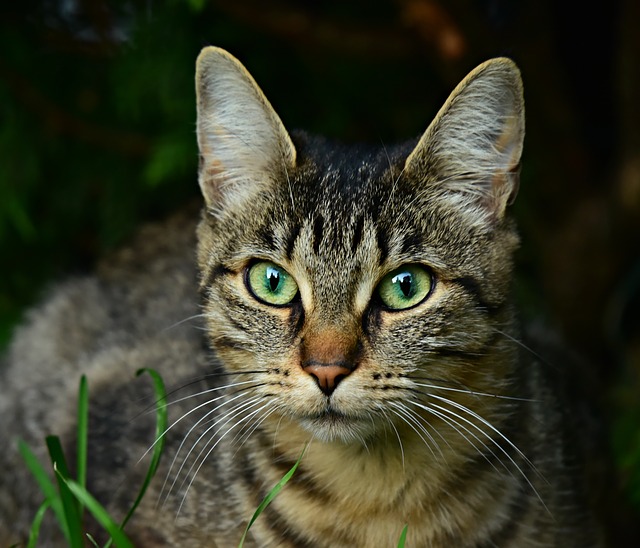
How to Clean Your Cat’s Ears
Before you attempt to clean your cat’s ears for the first time, make certain you feel relaxed and confident in your attempt. Your cat will know if you are nervous and could respond with anxious behavior of their own. Everyone should feel alright about this before you begin.
And it’s okay if you don’t feel comfortable cleaning your cat’s ears. It’s better to admit that than accidentally hurt your kitty. If your cat’s ears are filthy and need attention, make an appointment with the vet or groomer.
What You’ll Need:
- Ear cleanser, ask your veterinarian for a recommendation on which cleanser or ingredients will be best for your cat
- Cotton balls, NEVER stick Q-tips inside your cat’s ears!!
- Treats!
- Towel or washcloth for any cleanup
- Patience and calmness
Instructions for Cleaning Cat Ears
- Gather your cat in your arms, in a blanket purrito-style, or on the counter; whatever works best for you and the kitty.
- Offer treats or a snack throughout if food helps keep your cat still.
- Gently fold back the ear flap to expose the inner ear. Look for any signs of redness, swelling, or oozing. If you see any of this, pause the ear cleaning and give the vet’s office a call.
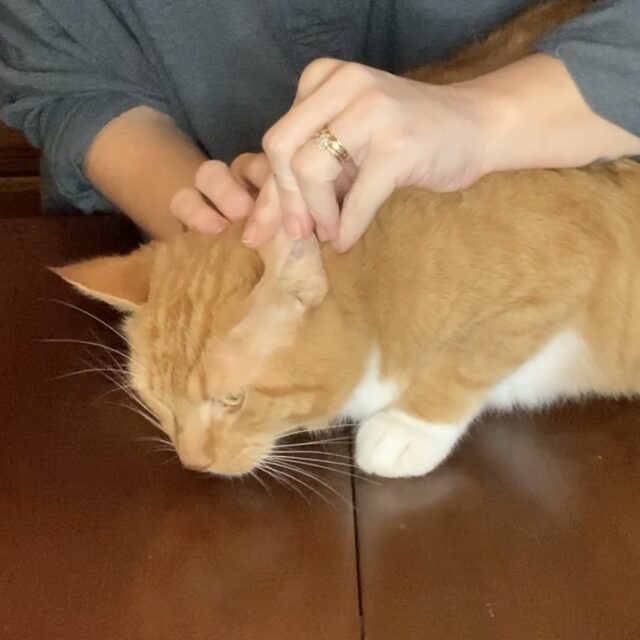
- If the ear is just dirty, proceed with the cleaning by placing the cleanser nozzle against the ear flap. Do not stick the applicator tip inside the ear. Allow cleaning fluid to drip down along the inside of the flap into the deeper portion of the ear.
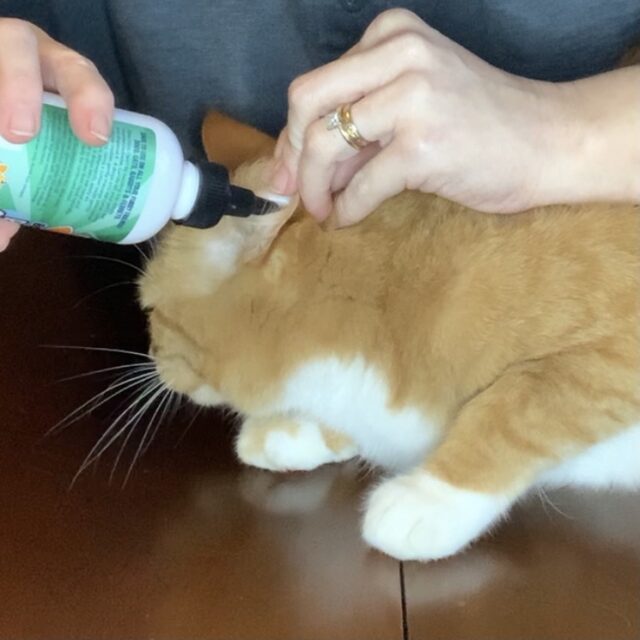
- Place your fingers at the base of the ear opening and massage fluid around inside the ear. Think gentle-cycle washing machine motions and swish that stuff around, loosening dirt in the process.
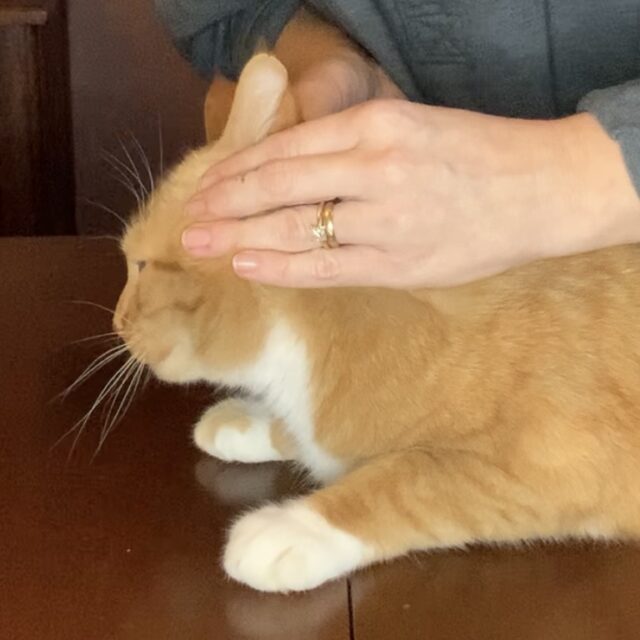
- Using the cotton ball, wipe fluid and dirt from the ear. Again, never stick cotton swabs inside your cat’s ears.
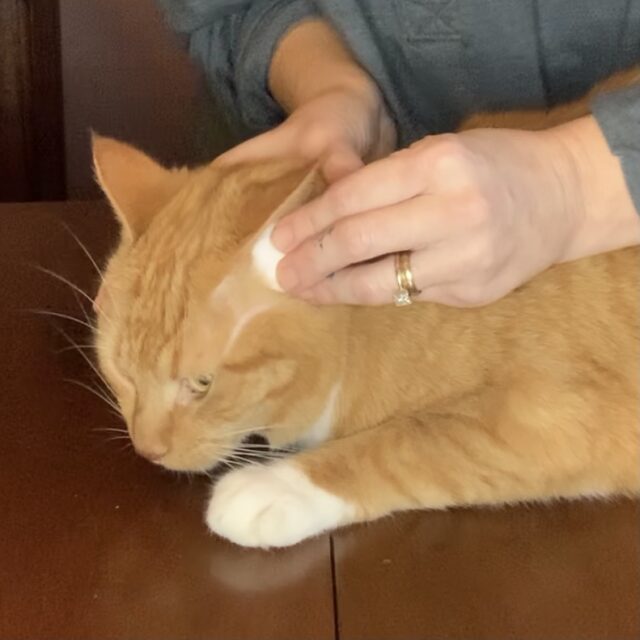
- Allow your cat to shake her head. Watch out though, cleanser droplets will fly. This is where a towel or washcloth might come in handy.
- Take hold of the ear flap again and wipe out any remaining gunk.
- Offer love and treats for a good job.
- Repeat the process on the other ear.
And now, your cat has clean ears…all the better to hear the cat food can cracking open!
